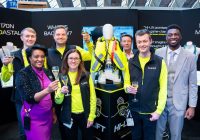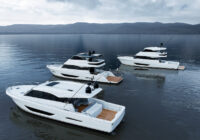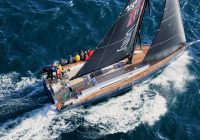Sydney will host the Discover Maritime Innovations Conference on 21 October 2025, bringing together industry leaders, innovators, and students to showcase Australia and New Zealand’s maritime decarbonisation value chain. The one-day event at the Hyatt Regency Sydney will feature breakthrough announcements in vessel autonomy, electrification, advanced manufacturing, and smart port technologies, positioning the region at the forefront of global maritime sustainability.
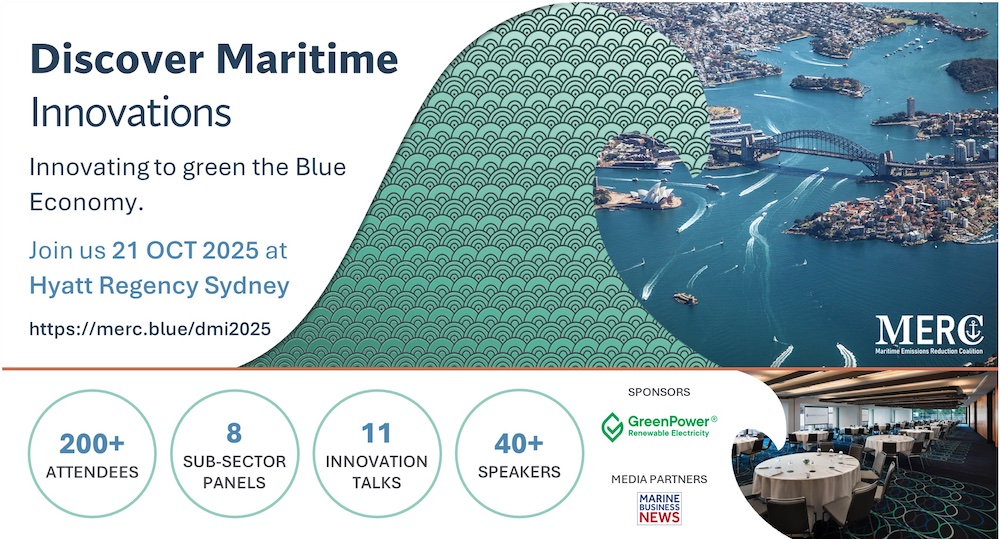
At a time when there is a renewed drive for local manufacturing and sovereign value chains, the conference has positioned itself as the only event dedicated to highlighting the challenges and opportunities climate change presents for the Australian maritime industry. It will bring innovators, both established suppliers and start-ups, together with maritime industry leaders and experts, while also promoting existing innovations across the sector and giving students a reason to consider a maritime career.
The program has been designed to help industry leaders and experts introduce innovators to the opportunities and challenges that exist across eight distinct sub-sectors of the maritime industry. These include marine tourism, ports and supporting services, defence and marine safety, offshore wind and marine construction, marinas and boating infrastructure, water-based transport, commercial fishing and aquaculture, and ship and boat building and repair.
In addition to these industry sessions, eleven innovation talks will showcase existing solutions that are already advancing the decarbonisation of the maritime sector. Topics range from efficiency measures such as robotic hull cleaning, air lubrication systems and digital route optimisation, through to drop-in fuels including renewable diesel and biodiesel. The conference will also address electrification, with discussions covering outboards, inboards, hybrid systems and operational changes, as well as advanced manufacturing techniques. Among these is large-format additive manufacturing that makes use of recycled materials, including subsea pipes from oil and gas projects, to create new marine infrastructure.
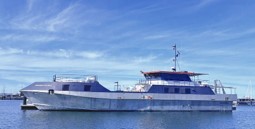
Tenggara Explorer with GAMA autonomy software from Greenroom Robotics
A number of major announcements are expected during the conference. Greenroom Robotics will be previewing a breakthrough in vessel autonomy with the latest iteration of its navigation software, GAMA. The company has successfully deployed its GAMA autonomy software with advanced predictive control on the 110ft+ Tenggara Explorer.
Integrated with an industry-standard USBL system from Unique Group and Sonardyne, GAMA now delivers DP-level precision for autonomous ROV and AUV operations on smaller, more cost-effective vessels.
“Experienced captains don’t just react to the sea, they anticipate it. With advanced predictive control, GAMA now does the same,” said Zac Pullen, Chief Technology Officer at Greenroom Robotics. This advancement takes maritime autonomy beyond achieving waypoints, it applies seamanship to software, and makes subsea data collection more affordable, scalable, and accessible.

EClass Outboards will also be in the spotlight with a new solution aimed at transforming the nation’s recreational boating sector. Australia is home to more than one million registered recreational vessels, yet as Lynelle Johnson, Managing Director of EClass Outboards, observes, “Let’s start with a sobering fact: only 0.01% of our recreational boats are electric. That’s not just a gap – it’s a chasm.” While Europe forecasts a 13.2% annual growth rate in electric boats, Johnson warns that Australia risks falling behind unless scalable solutions are introduced. EClass Outboards is tackling the problem with its Electric RePower hybrid kit, designed to retrofit power boats up to 12 metres.
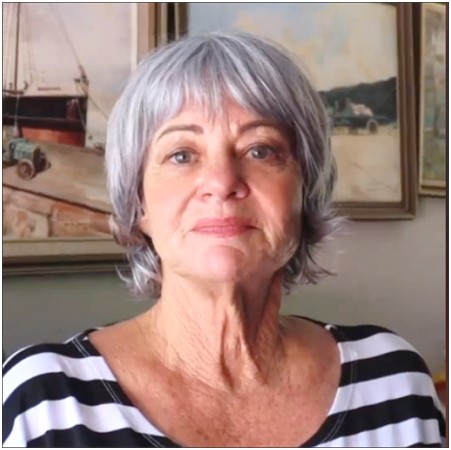
The system is already being installed on Reef Runner, a 37-foot ocean-going trawler. Positioned between twin 375HP Caterpillar diesel engines, the hybrid kit enables the vessel to cruise at hull speed or plane using just one internal combustion engine. The outcome is a dramatic reduction in fuel consumption and carbon emissions. Beyond environmental performance, the technology enhances quiet running and precision manoeuvrability, making docking and mooring smoother and safer. “Retrofitting is one of the fastest ways to close the electrification gap,” Johnson said. “We’ve engineered a solution that’s affordable, scalable, and compatible with existing marine infrastructure.”
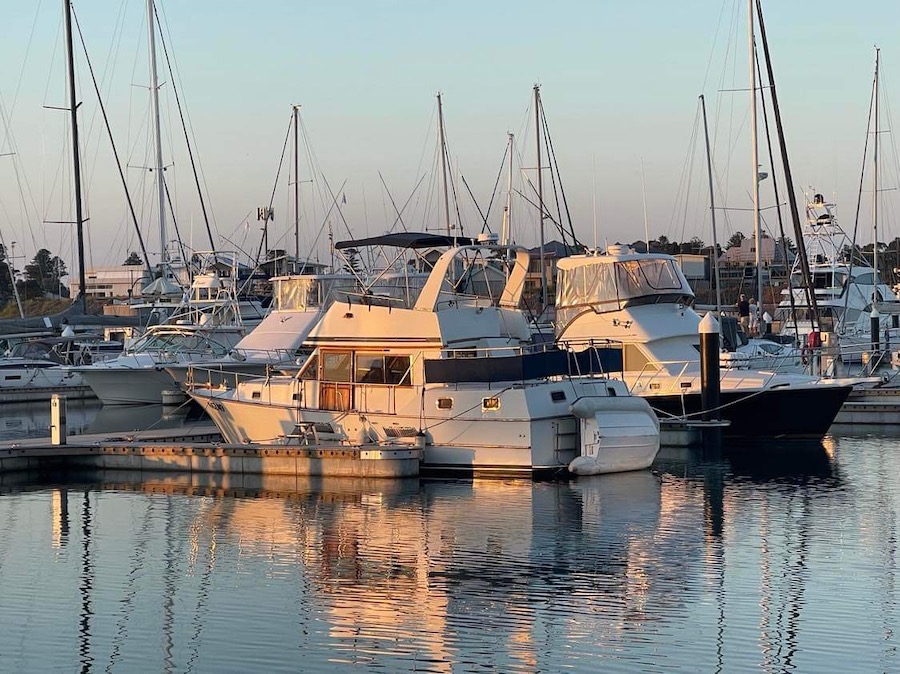
Reef Runner – Hybrid electric propulsion by EClass Outboards
Another key announcement will come from Hyperion Systems, which is launching a containerised large-format 3D printing solution for boat builders and marine component manufacturers. This innovation will allow businesses to bring advanced manufacturing directly to where it is needed most. “Our containerised large-format 3D printing cells give boat builders, shipyards, ports and offshore operators the ability to manufacture critical components on-site, at speed, and without reliance on distant supply chains. It’s a new model of distributed manufacturing designed for the maritime sector,” said Joshua Wigley, CEO of Hyperion Systems.
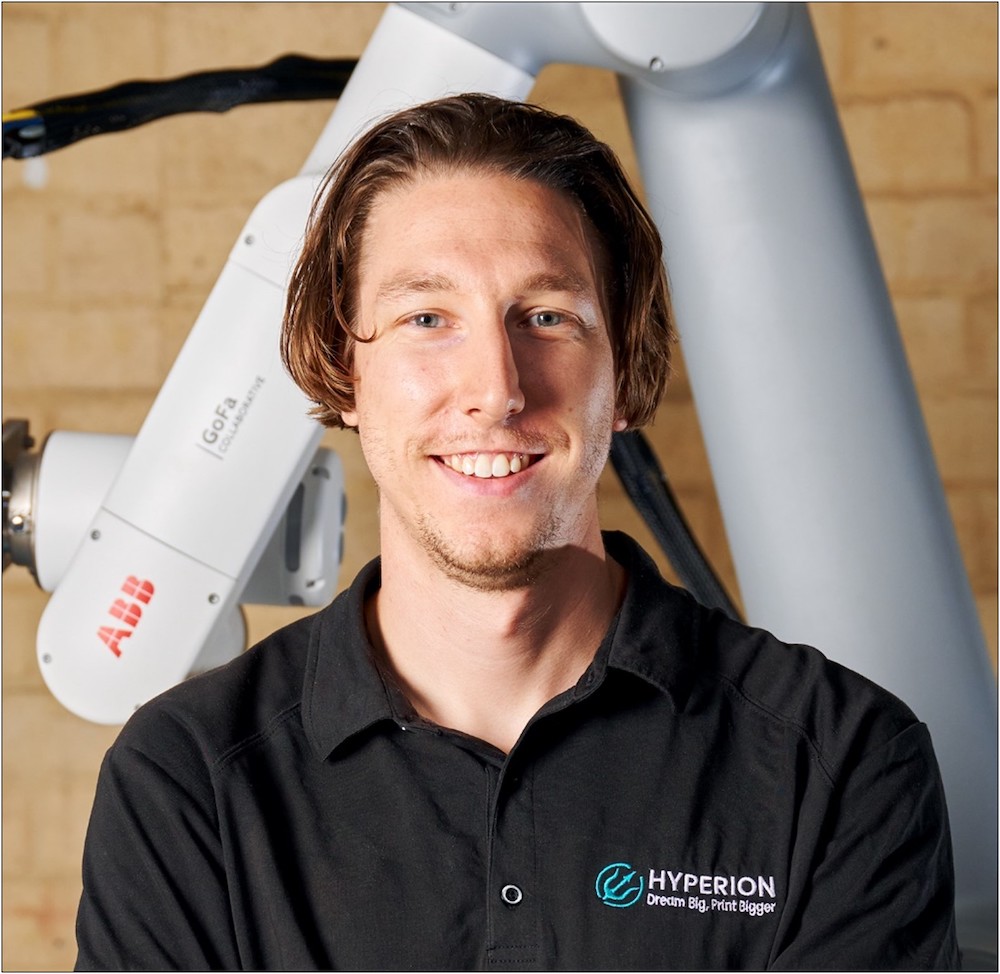
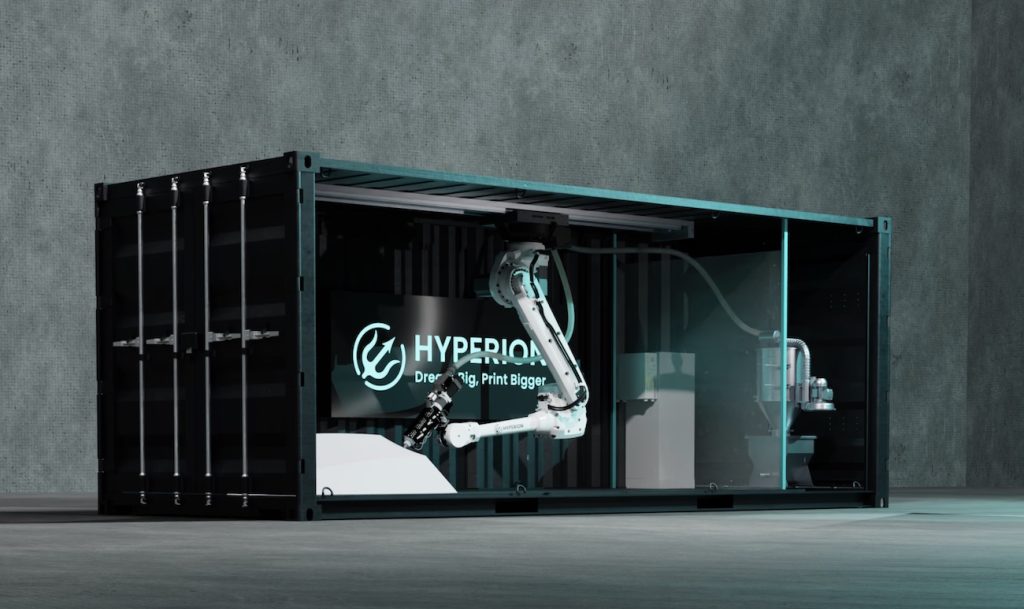
Containerised 3D printing from Hyperion Systems
The company will also demonstrate 3D printing of full-scale boat hull sections from recycled polymers, reducing the embedded emissions in new vessels by reusing plastics from old subsea oil and gas pipes, or by recycling their own printed prototypes. Wigley added, “We’re proving that polymers from decommissioned subsea pipelines and umbilicals can be recycled and turned directly into high-strength, seaworthy structures. It’s a genuine circular economy breakthrough that tackles a massive waste problem while creating a sovereign supply of marine-grade materials.”
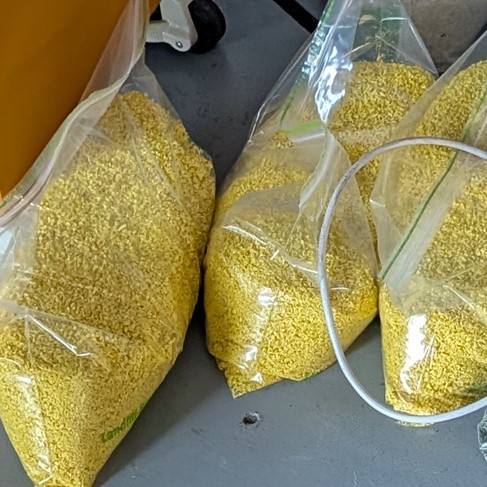
3D printing pellets recycled from subsea pipes by Hyperion Systems
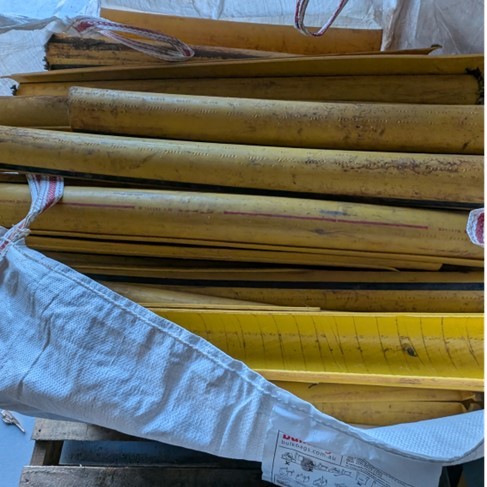
Used subsea pipes for recycling by Hyperion Systems
Tidetech will be introducing a world-first collaboration where their high-resolution oceanographic data is powering DeepSea Technologies’ advanced AI platform, Pythia, to unlock the next generation of shipping optimisation. By combining real-time environmental data – including tides, currents, and wave dynamics – with on-board vessel sensors and AI-powered vessel modelling, this partnership delivers individualised voyage planning. The result is measurable reductions in fuel consumption and CO2 emissions, especially in short sea shipping where tidal effects are often overlooked. The system dynamically optimises routes and engine settings to deliver up to $40m in annual savings for a 100-ship fleet.
“This isn’t generic routing. It’s intelligent, adaptive decision-making, a clear demonstration of how environmental science and AI are transforming maritime operations,” said Dr Roger Proctor, Tidetech’s Chief Scientist.
GILLS Australia is also set to share significant developments. The company has been selected as a Smart Port Challenge finalist out of 288 candidates from 30 countries. Backed by the Singapore Government and organised by the Maritime & Port Authority of Singapore and the National University of Singapore, this recognition highlights the global significance of GILLS’ innovations.

In a major milestone, COSCO Shipping Heavy Industry Technology has signed a licence agreement to install the GILLS ALS solution across its container vessels and those of its partner shipping companies.
The company has also achieved Approval in Principle from the American Bureau of Shipping, giving it endorsements from five International Association of Classification Societies members. This progress underscores the growing market acceptance of the GILLS ALS technology and cements its position as a leader in maritime decarbonisation innovation.
The Discover Maritime Innovations Conference will take place on 21 October 2025, running from 8:00am to 5:30pm at the Hyatt Regency Sydney, 161 Sussex Street. Full event details, including the program and speaker list, are available via the conference website at merc.blue/dmi2025.
The conference is being presented by the Maritime Emissions Reduction Coalition (MERC), a regional innovation cluster founded to accelerate decarbonisation of the Australian maritime sector and grow a domestic value chain for solutions such as low-carbon liquid fuels and maritime electrification. MERC already has 34 participating organisations from across the industry and continues to expand. More information is available at merc.blue.





